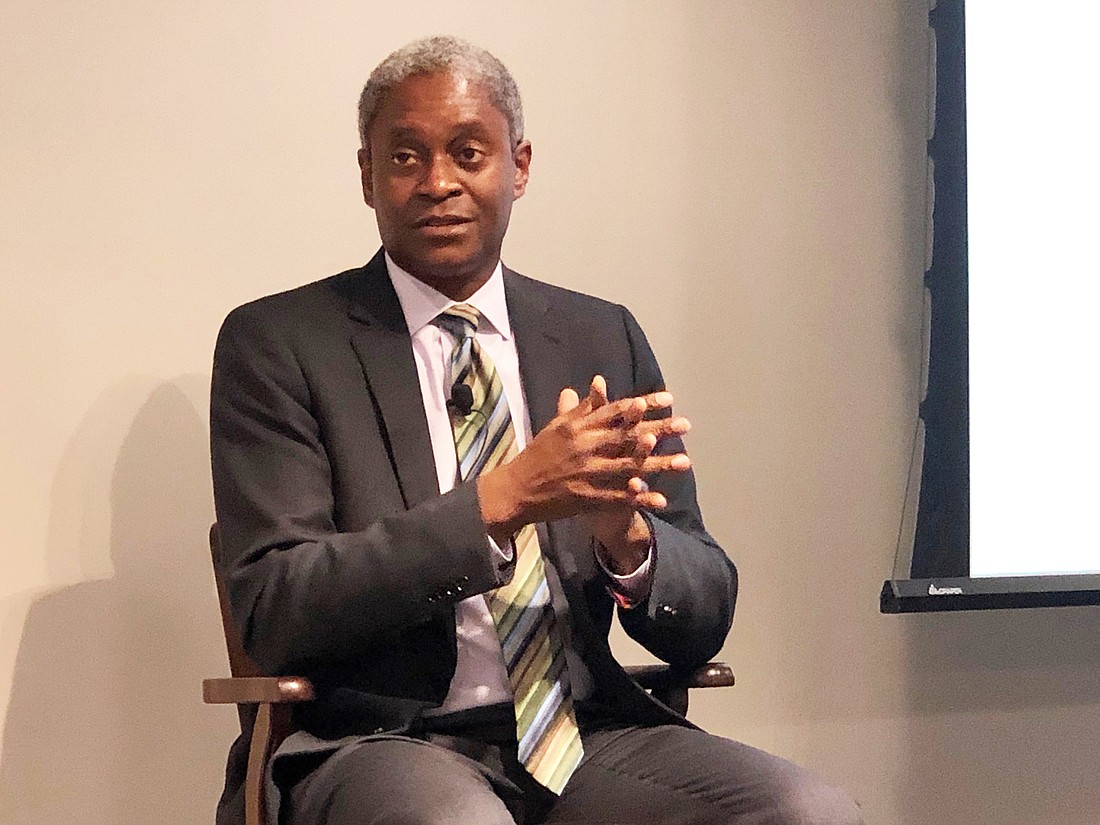
In the eyes of many financial experts, targets set by the Federal Reserve Board have an oversize impact on the direction of the U.S. economy.
But as far as Federal Reserve Bank of Atlanta President Raphael Bostic is concerned, the economy functions better when the Fed steps back from overemphasizing numbers.
“Let the economy just cruise anyway it wants to go,” Bostic said Thursday at an Economic Roundtable of Jacksonville luncheon at the Jacksonville branch of the Atlanta Fed.
The Fed does try to guide the economy toward certain targets, such as a steady 2% inflation rate, he said.
However, Bostic is more concerned about the feedback he gets from business people about the impact of inflation than what the actual numbers show.
“When I think how I approach the policies, it is really information-based,” he said.
Bostic, one of 12 regional presidents in the Federal Reserve system, joined the Atlanta bank in June 2017.
Although he doesn’t want the Fed to have an overreaching impact, he’s come to realize that financial markets pay close attention to his views on the economy and monetary policy.
“If I say words, there’s some possibility they may be repeated in the media,” he said.
“In this job, I never have an anonymous moment,” he said. “That’s been an adjustment.”
However, Bostic said he has become comfortable with his role.
“Once I understood what it was, it’s been great,” he said.
The Atlanta Fed region covers all or parts of six states, and Bostic said he tries to get input from everyone working in the organization and business contacts who keep the Fed informed about conditions in their markets.
“I really try hard to be just another person, to be part of a team,” he said.
Chris Oakley, regional executive for the Jacksonville branch, said he’s been at the bank for 31 years and he’s noticed a difference under Bostic.
“It’s a new generation of leadership where everybody feels a part of things,” he said.
Bostic, who was a professor at the University of Southern California before moving to Atlanta, said he’s learned a lot about the region in his two years on the job, including the diversity of the economy.
“It’s a big area. It’s a lot of different markets. It’s a lot of different economies,” he said.
Even in a city like Jacksonville, the economic experience can be very different from one neighborhood to the next, he said. For that reason, Bostic doesn’t think wide-ranging economic data like the nation’s gross domestic product matters much to local families.
“No family actually lives that experience,” he said.
However, Bostic singled out one particular neighborhood as important to Jacksonville’s growth – Downtown.
“For Jacksonville, a big question is what to do with Downtown,” he said. “I think these sorts of things matter.”
Bostic said a vibrant Downtown sends a message.
“The more that Jacksonville projects that kind of energy and excitement, the more it will take off,” he said.